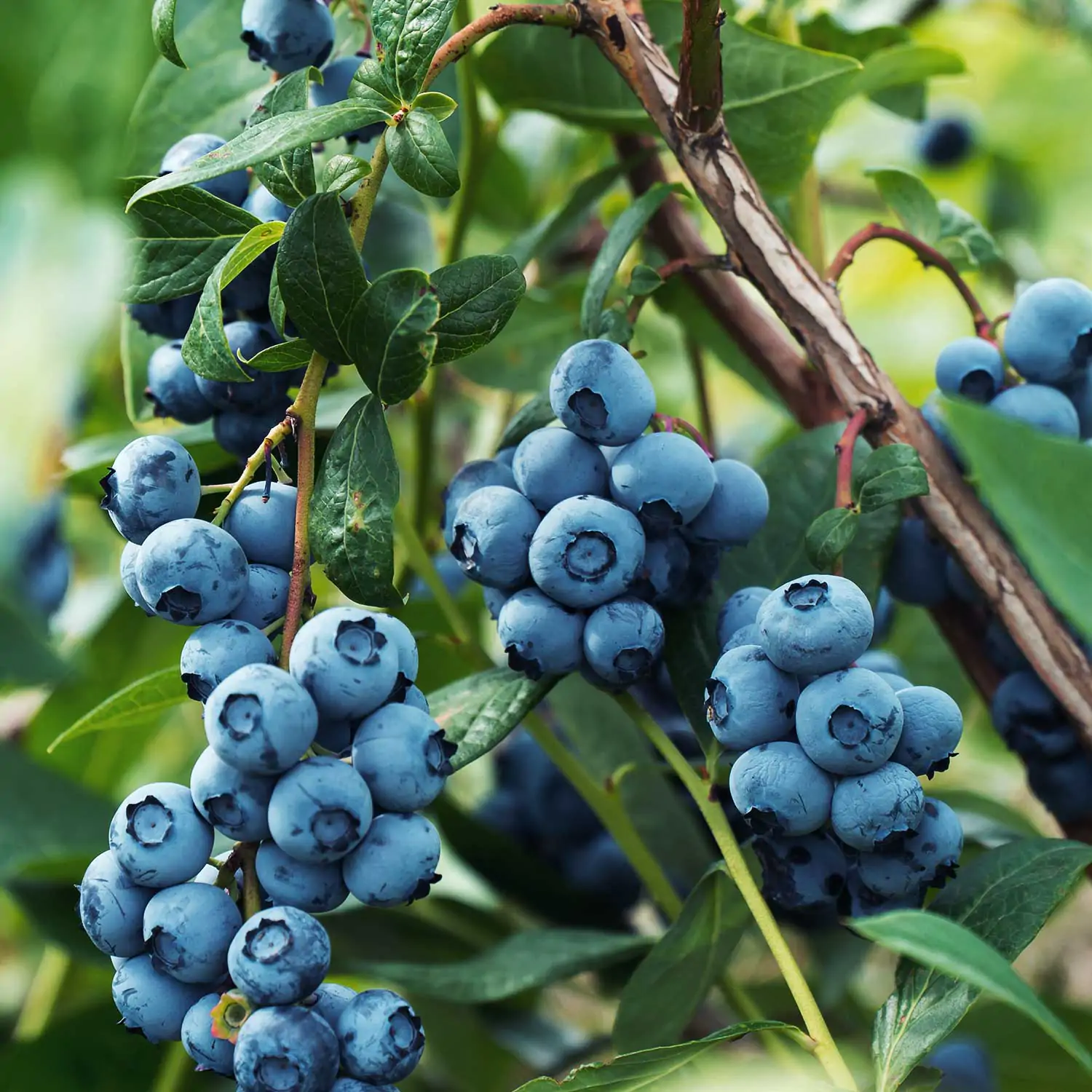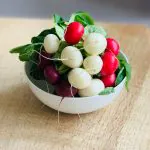Get The Most Out of Your Blueberries from Backyard Eats
Harvesting Blueberries
When It’s Ready
- Look for fully ripened berries: Blueberries should have a deep blue color with a slight grayish hue.
- Check for a powdery appearance: The berries should have a dusty bloom on their surface.
- Gently squeeze a berry: Ripe blueberries will be plump and have a slight give when gently pressed.
- Harvest when the berries are fully blue: Avoid picking berries that are still green or reddish.
- Summer, typically from June to August
When It’s Too Late
- Overripe blueberries become soft, mushy, and may fall off the bush easily.
- Regularly monitor your plants to avoid missing the ideal harvest time.
How To
- Use your fingers or a small pair of garden shears to pick the ripe berries.
- Hold the berry gently between your thumb and forefinger and give it a slight twist to detach it from the bush.
- Collect the harvested blueberries in a shallow container or basket, being careful not to crush them.
- Keep the harvested berries out of direct sunlight and in a cool place.
About Blueberries
Blueberries are shrubs that grow 3-12 ft tall. They require partial to full sun to thrive. Netting may help protect fruit from birds and squirrels. Blueberries require a pollinating pair to produce fruit.
Flowering/Fruiting Tendencies
Blueberries produce white, bell-shaped flowers in spring, which turn into berries when pollinated. Many blueberry varieties are labeled as “self fertilizing” but do significantly better when paired with a pollinating variety with overlapping bloom.
Design Notes
Blueberries are typically found in lowbush (1-2 ft at maturity) & highbush (6-12 feet at maturity) varieties. Lowbush are well suited for pots and containers, whereas highbush are preferred in the landscape. Planting highbush varieties 4-6 feet apart in pollinating pairs in the landscape is ideal. Blueberries like sandy and acidic soil and raising them out of the native soil is preferred in Pennsylvania.
Care Notes
Blueberries benefit from compost, mulch and basic pruning of dead, diseased or dying wood. Blueberries additionally benefit from annual applications of soil acidifier to keep the soil PH as desired.
Newly planted perennials require some additional care to help establish and support the plants as they grow. Water newly planted perennials deeply at the root 2-3 times a week during the first growing season. Apply compost and wood chip mulch in the late winter/early spring.
Storing Blueberries
Fresh Storage: Place berries in a breathable container lined with paper towels in the refrigerator for up to five days.
Long-Term Storage: Freeze the fruit in a single layer on a baking sheet. Transfer it to a freezer-safe container for up to six months.

Cooking With Blueberries
- Blueberry Muffins: Incorporate fresh or frozen blueberries into a classic muffin batter. The juicy blueberries add bursts of sweetness to the tender muffins.
- Blueberry Pancakes: Add fresh blueberries to pancake batter and cook them until golden brown. The blueberries create delightful pockets of sweetness in each pancake.
- Blueberry Smoothie: Blend blueberries with yogurt, banana, a splash of milk, and a sweetener of your choice. The result is a vibrant and nutritious smoothie packed with antioxidants.
- Blueberry Salad: Combine fresh blueberries with mixed greens, crumbled cheese (such as feta or goat cheese), nuts, and a light vinaigrette. The sweet and tart blueberries balance well with the savory and crunchy elements of the salad.
- Blueberry Sauce: Simmer blueberries with a bit of sugar and lemon juice until they break down and form a thick sauce. This versatile sauce can be drizzled over pancakes, waffles, ice cream, yogurt, or used as a topping for cheesecake or desserts.
- Blueberry Compote: Cook blueberries with a little sugar and water until they soften and release their juices. The compote can be enjoyed warm or chilled and used as a topping for oatmeal, yogurt, pancakes, or as a filling for pies and pastries.
- Blueberry Crumble: Mix fresh or frozen blueberries with sugar and a touch of lemon juice, then top them with a crumbly mixture made from oats, flour, butter, and sugar. Bake until the blueberries are bubbling and the topping is golden and crisp.




